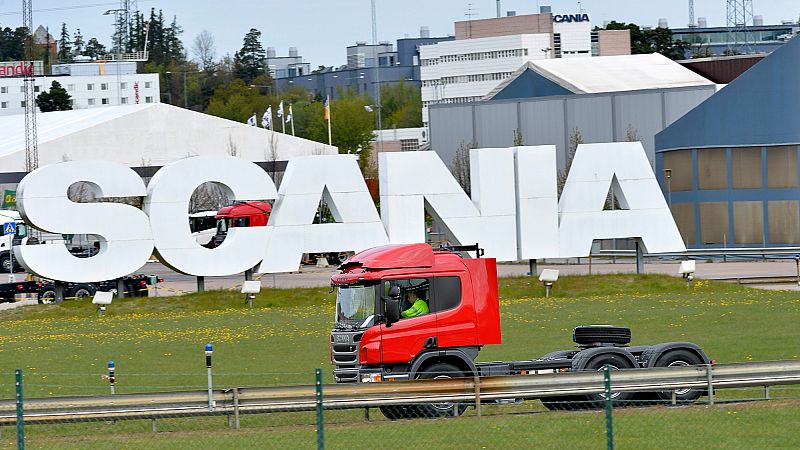
At least half of the trucks to be produced at Scania’s new €2 billion manufacturing hub in China will be exported, the company’s CEO Christian Levin said in an interview with the Financial Times (FT).
The new plant will begin production in October and exports will be focused in Asia and Oceania. This comes in addition to their existing sites in Sweden, the Netherlands and Brazil.
Swedish truck manufacturers Scania AB is owned by the Traton Group, a subsidiary of Volkswagen, which already has a significant presence in the country.
Like Volkswagen’s sites, the new production site for Scania will also be in China’s eastern Jiangsu province, but this time in the city of Rugao.
Following the success of Chinese EV brands like BYD making waves in the car industry in Europe, Scania is anticipating similar activity in the truck making industry and wants to stay ahead of their competition.
Following the rise of Chinese brands in Europe’s car market, Scania predicts that Chinese players may begin to dominate Europe’s truck industry too. The firm therefore wants to stay ahead of the curve.
“The Chinese manufacturers today are predominantly strong in China, but that’s today,” Levin told the FT.
“I’d rather take on the competition and try to beat them in their home market. And if we can do that well, then we know that we can do that well anywhere in the world.”
"Western truck manufactures in total have less than 1% market share in China. However, we believe that the high-end market will grow as the Chinese logistics system (including special purpose transports) demand more reliable and efficient transport solutions. That is what Scania can offer from Rugao," Scania told Euronews via email.
Scania begins production in China
Construction on the site began in 2022 and was completed in 2024—production is scheduled to begin in Rugao in the third quarter of 2025. The site will employ more than 3,000 people, Scania told Euronews.
Scania initially promised that the site would be emission-free, championing biogas produced from local wastewater sludge, food waste and other biowaste as the main source of power. Though the final status of the plant has not yet been made clear, if they have succeeded in their goal of building a carbon neutral facility, it will be the first commercial vehicle manufacturing plant in China with this designation.
Alongside Tesla, Scania is one of a small group of foreign manufacturers granted a license to operate a fully-owned plant in China.
In 2022, Mats Harborn, then president of Scania China Group said: “Instead of a single assembly line, we were able to acquire more land so we can now build an entire factory. What’s more, since China changed its investment rules, we have been able to act within a narrow regulatory window, enabling us to do this completely by ourselves — 100% Scania.”
The new production site is earmarked for a capacity of 50,000 vehicles per year and the Chinese government has asked Scania to scale up to full capacity as quickly as possible.
"It equals half of the current capacity of Scania Globally. In 2024 for the first time, Scania vehicle deliveries exceeded 100,000. This investment is future proofing Scania by building away existing bottle necks and by bringing us closer to the growth markets in Asia and beyond," Scania commented via email to Euronews.
Levin told the FT that this new site in Rugao, an addition to its existing manufacturing facilities in Europe and Brazil, would offer greater flexibility in allocating production depending on geopolitical developments. It will also significantly reduce delivery time for customers in Asia and Oceania.
"As Scania is already strong in Europe and Latin America, but rather underrepresented in Asia, Scania has chosen Rugao as its new production site," Scania added via email.
"Group ambition is to explore and adapt new unique Chinese technologies and local supply chains to further develop TRATON Modular System (TMS) to create more customer value. More localized supply chains increase the resilience of our production system. This investment will allow Scania be established as the customised brand for demanding applications in China and export markets."







